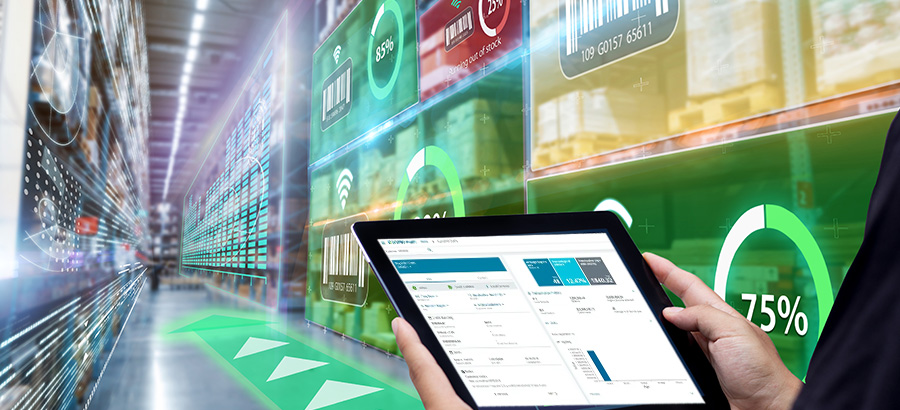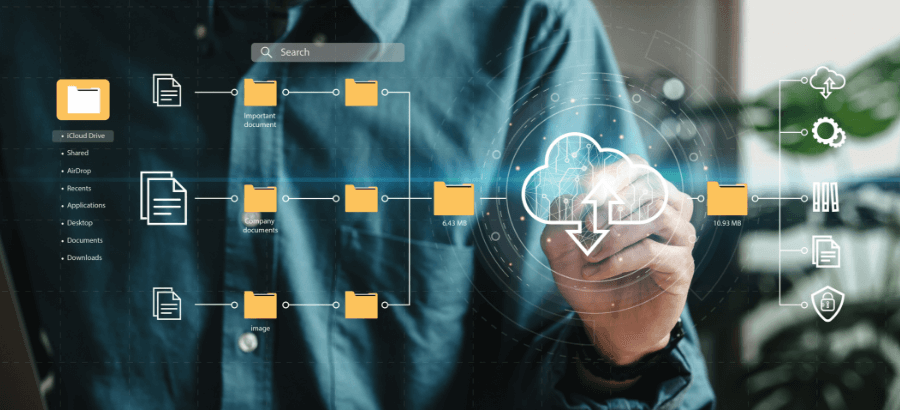Last week, I ordered a birthday present online for a dear friend from my favorite chocolate store. The shop’s unique and quality products have quickly made them my go-to-store for gifts over the past few years. However, over the past six months or so, they’ve become quite popular and I’ve found that the once easy ordering process I used to experience with them has now disappeared. I received a follow-up email from my last order apologizing that they didn’t realize the product wasn’t in stock, so therefore couldn’t fulfill my order, and unfortunately didn’t have a time frame for when they’d have more stock. I was instantly annoyed, asked for a refund, and ordered a different gift from another store.
After my experience, I got to thinking about how companies can avoid situations like this. I brainstormed with the SYSPRO team to pinpoint the signs that mid-market manufacturers and distributors should look for when trying to figure out if their business is ready for an ERP system; and most importantly, how an ERP system can solve these issues.
- You don’t have full visibility into your inventory
Without access to current, real-time information, businesses don’t really have the ability to accurately know what’s happening in their inventory on a daily basis. Where is waste occurring? Are those products expired? Do we need to order more of a certain product in anticipation of an upcoming holiday or event? An inventory management system can give businesses effective control of supply and demand, the ability to forecast, and accurately cost a product, among others. Mick Whitlock of Vanns Spices says, “SYSPRO has abled us to identify the products that are profitable and those that are not because we can look and see what is going on in the factory, and what we need to do to streamline production.” - Customer Service and Responsiveness is Declining
Without customers, businesses wouldn’t exist; therefore, keeping them happy is a priority. But, not having easy access to information about your business can result in a poor customer experience, subsequently causing a reputation of poor reliability and service and the potential for losing customers (just like my above experience). ERP systems help improve customer service by keeping customer, product and inventory information up-to date. David Hintzman, President of Bodypoint Inc. can attest to this: “SYSPRO allows us to better serve our customers at a higher level of quality and accuracy. At the Order Entry screen, we are able to confirm their order with them and tell them when it can ship which is hugely important to us.” - Disparate Systems and/or Spreadsheets Run your Business
It’s hard to believe that multi-million dollar businesses still run on spreadsheets or disparate, unlinked systems. Managing daily operations through the use of Excel Spreadsheets often results in errors, duplication of work and inefficient communication across the board- not to mention that manually entering data into spreadsheets can be incredibly time consuming for employees. Additionally, disparate systems and Excel spreadsheets don’t integrate different departments across the business. Bodypoint Inc. found that prior to implementing SYSPRO ERP, “Our financing system didn’t speak to our invoicing system, which didn’t speak to our manufacturing system and it caused us to do a lot of ‘work arounds’ and a lot of extra work.” Fully-integrated ERP systems, like SYSPRO, can help avoid this by offering a 360 degree view into operations with access to real-time data, so that problems are more easily identified and staff can make more effective business decisions. Financial data is always current thanks to real-time integration between financial, distribution and manufacturing solutions.The cost of holding onto a disparate system, or not having a system at all, can cripple some of the best companies, and in some cases, even put them out of business. Identifying the signs that your business is ready for ERP system is the first step to cutting costs, improving ROI, becoming more efficient and raising customer service levels.
If you have experienced any of the above scenarios, it’s time to consider a fully-integrated ERP solution. For more information on SYSPRO ERP, please contact us.







